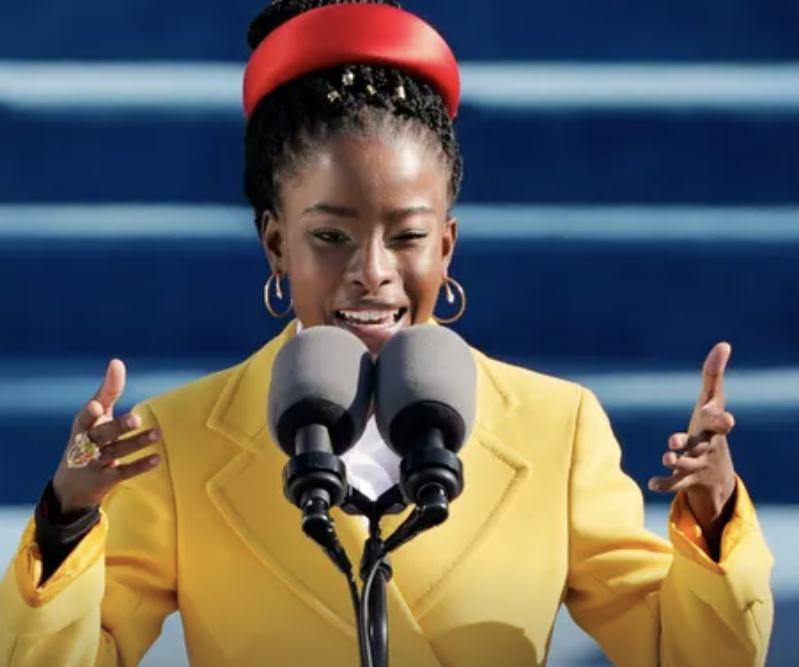Right after the 22-year-old poet Amanda Gorman took to the stage after Joe Biden and Kamala Harris were sworn in as President and Vice-President on Wednesday, her name started appearing on all kinds of social media feeds. As the youngest ever inaugural poet, she delivered a five-minute speech that would soon go viral, with instant translations appearing on websites all over the world.
A superfan of Toni Morrison who grew up with an English teacher mother, she also happens to be Harvard educated. Gorman defines herself, first and foremost, as a community leader. Still, poetry is her thing. She has been writing poems since she was in third grade, and in Los Angeles, her hometown, she pioneered literacy forums and workshops as a teenager. Gorman is the kind of citizen activist whose prose is uplifting because it is firmly rooted in advocacy initiatives.
When Amanda was 16, she started a community project called One Pen One Page, which was focused on literacy and youth activism. “My goal has never been to convert every young person into a professional writer,” she said, “my goal is to make sure every young person has the literacy skills they need to raise their voice and change their communities. That passion drives me every day.”
Although her frequent public speaking fits in the tradition of so-called “occasional poetry,” her most polished published work includes a collection of poetry, The One for Whom Food Is Not Enough, which caught the attention of Michelle Obama after it came out in 2015. Jill Biden, the educator who is the new First Lady of the United States, also became a fan of Gorman’s work and convinced the inaugural committee that Gorman would be a perfect fit for the ceremony.
The Hill We Climb, which started by addressing “Mr President, Dr Biden, Madam Vice-President, Mr Emhoff, Americans and the world,” is such a beautiful, truthful and powerful poem that we felt we should share a paragraph from the transcript of her reading.
But while democracy can be periodically delayed, it can never be permanently defeated. In this truth, in this faith we trust for while we have our eyes on the future, history has its eyes on us. This is the era of just redemption. We feared it at its inception. We did not feel prepared to be the heirs of such a terrifying hour, but within it, we found the power to author a new chapter, to offer hope and laughter to ourselves so while once we asked, how could we possibly prevail over catastrophe? Now we assert, how could catastrophe possibly prevail over us?
